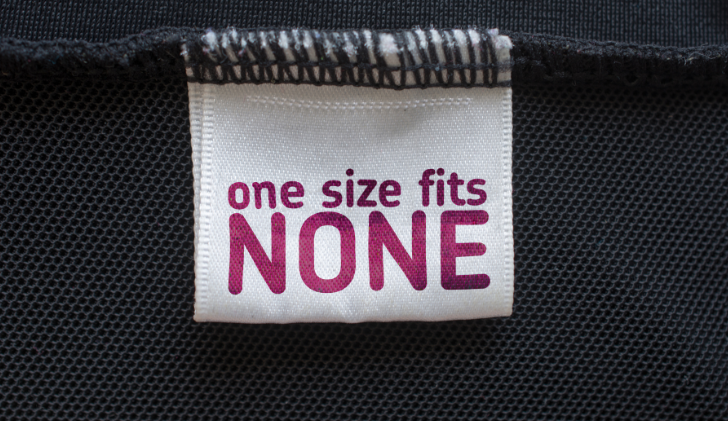
As my first post on Healutiful, I wanted to write about a matter that I wish I had learned when I was younger trying to lose weight. We are currently bombarded with diets, weight-loss supplements and “slim teas” that all promise a better life after you lose weight by solely focusing on superficial aspects of the body, instead of the other underlying issues that may be affecting health. Due to lack of time, support, and energy, these quick solutions sound enticing, but many people are left frustrated and feeling worse than before without any long-term solution to their health concerns. In this article, I will be discussing the reason why weight-loss is not always the primary solution, and how it can have adverse effects on health.
Altered Metabolism

Although there are many weight-loss diets and supplements freely available on the market, rates of obesity are still steadily increasing in adults within Canada. Cutting calories and exercise sounds like a very simple solution to weight-loss, it is not always the case. If not done properly, many people find that they put back on weight or even more than what was lost. This creates a never-ending cycle of dieting that could potentially lead to long-term negative effects on your health and your metabolic functioning. People will also find that they have lower energy than they had before due to a slower metabolism. Also, body composition plays a key role in how your body weight is distributed which may not be accurately reflected on the scale or body mass index (BMI).Although weight-loss is being reflected on the scale, lean muscle mass may be lost as well, resulting in a decreased resting metabolic rate and weight gain once caloric intake returns to normal.
Stress & Hormonal Effects

People commonly associate being overweight or obese as the primary source of poor health. Weight gain is typically a symptom, not a cause of imbalances in the body that could result from many factors such as nutrient deficiencies, environmental factors, and stress. Stress is something that is unavoidable where a little needed for biological functioning, but it becomes a problem when it becomes chronic. If you have noticed that you require more than one coffee a day to even keep your eyes open to face the day, you may be dealing with chronic stress and adrenal fatigue. What happens when the body is in a stressed state, or fight-or-flight mode, the adrenocorticotropic hormone (ACTH) is activated and released in the brain to signal the adrenals to release adrenaline and cortisol into the bloodstream to put the body in high alert against the perceived threat. Prolonged periods of stress could cause levels of blood pressure, blood sugar, and cortisol. Solely focusing on losing weight by severely cutting calories or excessively exercising with little recovery, can cause an already stressed body to burn out and bring weight-loss efforts to a complete halt. This happens when energy is expended beyond the body’s functioning and the accumulation of cortisol to inhibit fat-loss.
With hormones being very important in body functions, many people who have difficulty with weight loss and have unexpected weight gain may need to look into their thyroid. The thyroid, a butterfly-shaped gland that sits around the throat, is responsible for many functions in the body including resting body metabolism and oxygen consumption. low thyroid function could create symptoms such as increased cholesterol levels, weight gain, shortness of breath, fatigue, irregular menstrual cycles, and decreased body temperature. Starting a strenuous weight loss regime without being in tune to any hormonal imbalances can be a hindrance to your efforts, creating more frustration and negatively impact motivation.
One size does not fit all

An important question to ask yourself is when it comes to weight loss, are you trying to achieve a body that is completely different from your own? Every-body is different. Genetic factors can play a factor in how we distribute fat and muscle within our bodies, therefore your body’s “body goals” may be entirely different from another person, without going to extreme measures.With the rise of social media, there are many influential figures with marketed products, diets and fitness regimes that promise fast results that are similar to their own. Even if you tried all of the diets out there, not all of them are going to work for you. It is important to understand your body’s needs, hormonal imbalances, and nutrient deficiencies first before attempting any weight-loss regime. Seeking individualized guidance and advice from health care professionals that are aware of these factors would be a better approach to gain a better insight of your body composition and optimal methods of weight management.
In the end

When it comes to weight management, you cannot out-run a poor diet and cannot calorie count yourself fit. There needs to be a balance between physical activity and nutrition in order to see improvement in your health and overall well-being, not just numbers on a scale. Trying to whip yourself into harsh ideals of what you should look like and what your diet should be will only add another pile of stress and diminish your self-confidence, instead of promoting wellness. Take your time and be easy on yourself. Once you make health your priority over losing weight, you will notice that you will begin to enjoy the process and be able to focus on creating healthier and sustainable lifelong habits.
Sources
- Drenowatz, Clemens, et al. “The Prospective Association between Different Types of Exercise and Body Composition.” Medicine & Science in Sports & Exercise, vol. 47, no. 12, 2015, pp. 2535–2541.
- Kovacs, William J., and Sergio R. Ojeda. Textbook of Endocrine Physiology. Oxford University Press, 2012.
- Murray, Michael T. Stress, Anxiety, and Insomnia: What the Drug Companies Won’t Tell You and Your Doctor Doesn’t Know: the Natural Solutions That Can Change Your Life. Mind Publishing Inc., 2012
- Statistics Canada. “Overweight and Obese Adults (Self-Reported), 2014.” Government of Canada, Statistics Canada, 27 Nov. 2015, www150.statcan.gc.ca/n1/pub/82-625-x/2015001/article/14185-eng.htm.









